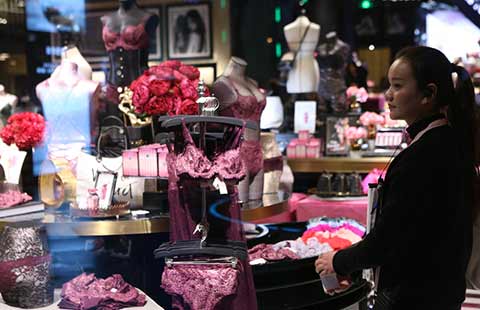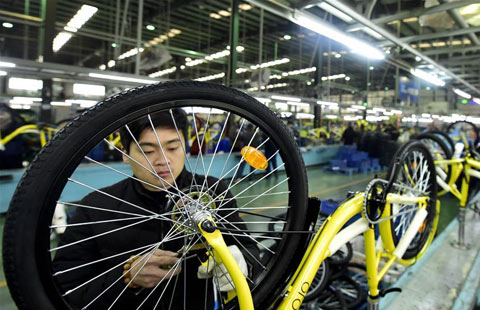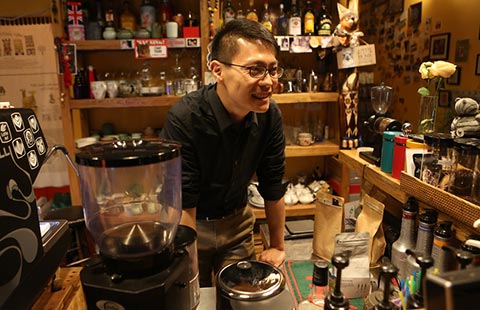Unlicensed helpers lending a hand
Personal hygiene
Lang occasionally goes home to plough his rice field - the rice he plants now provides food for the family - and sometimes returns to the sick room with dirty finger nails and mud on his pants, his muddy shoes leaving brown footprints on the hospital's white floor.
At night, he curls up on a small couch or nods off on a wooden chair near the sickbed, in case the patient needs him. Sometimes, he squats in the stairwell and smokes, despite a building-wide ban on smoking.
"He doesn't care about his personal hygiene at all. Sometimes we have to remind him to wash his hands after using the bathroom and before he touches the patient," said Zhang Jingkang, Lang's employer. "But we need him to take care of my sick brother while we are at work."
Nurses are too busy to take care of every patient, said Shi Hongyan, a healthcare expert at the Chinese Association for Life Care. She said in most hospitals each nurse is usually responsible for at least 15 patients. "When the nurse serves meals, the food is often stone cold when it reaches the last patient," she said.
According to Shi, China's hospitals used to hire professionally trained nursing assistants, but that ended during a round of budget cuts in the 1990s when market forces were first introduced and cash-starved hospitals tried to make ends meet.
That resulted in patients having to find healthcare workers through agencies. Either that, or they can employ an unqualified freelance patient care worker from the streets; these people can often be seen wandering around outside hospitals holding boards reading "hugong" and detailing the salary they expect.
Shi said the lack of medical training can cause serious problems and even endanger patients' lives.
"One worker mistook beriberi medicine for eye drops and burned a patient's cornea. Another used boiling water for an enema," she said. "In order to make more money, they sometimes take care of a large number of patients simultaneously, which can result in cross-infection."
Since 2007, the government has been promoting a qualification certificate for nursing assistants. It includes one month of medical training, an examination and clinical practice. The course costs around 1,800 yuan, but the certificate is not obligatory. According to a report by the Chinese Association for Life Care, which is in charge of the training scheme, more than 300 people have earned the certificate so far.
"The number is far too small, compared with the hundreds of thousands of unlicensed nursing assistants," said Luo Jilan, the director of the association.
In 2007, the association wanted to recruit 3,000 trainees, but not a single person showed up to register. "The workers don't want to pay for the training because they can make money without the certificate. And the agencies and hospitals don't want to pay either, because the certificate is not mandatory," said Luo.
- Graduates from elderly-services major in demand
- Nursing homes to cover Beijing's elderly population
- Shanghai establishes standard to categorize elderly
- Increase in rural nursing homes set
- Nursing homes reject childless couple
- Tianjin to open more aged care facilities
- Beijing plans more nursing homes for senior citizens

















